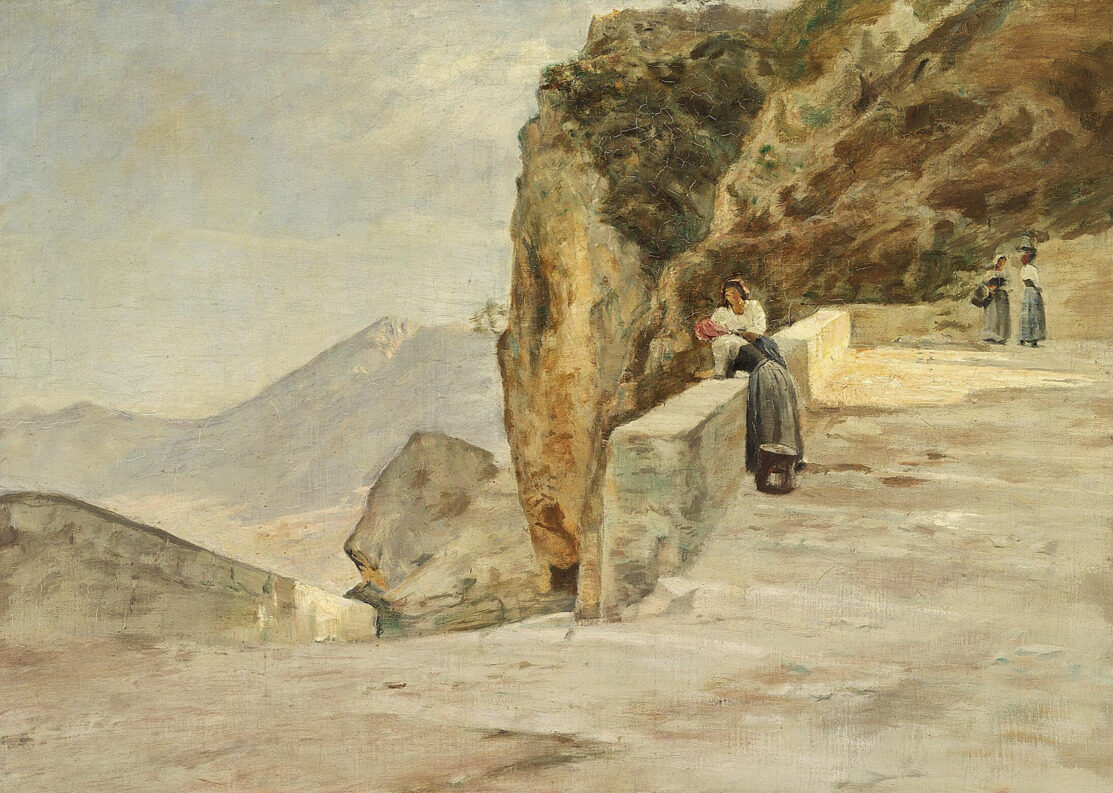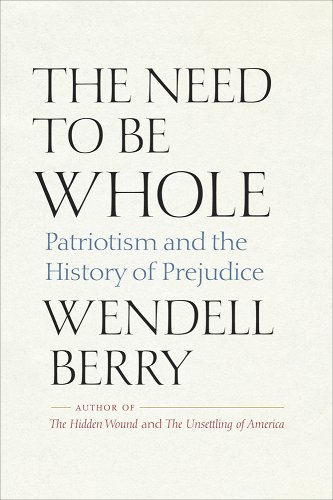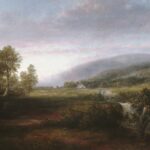Brecon, Wales. Stories are a necessary part of healing and wholeness. I don’t just mean a story we may like or we tell ourselves (though they include that), nor do I mean that story we weave from our experiences and think of as our life or our autobiography (though they include that too). I mean all the stories that surround us, even those we don’t like, that invite us into themselves either to discover something about ourselves or to see things from another perspective with sympathy or revulsion or even indifference. By speaking to our imaginations, stories have the capacity to go beyond where logic and argument fail, to places where our prejudices would prevent us prying. It is, in fact, their capacity to undermine our prejudices and dismantle even our most cherished beliefs that give stories their power to heal. Perhaps this is why Christ so often used parables for his most difficult teachings.
If stories are necessary for healing and wholeness, argument is too often intended to wound, especially when deployed against our opponents. Unless we quickly persuade others of our point-of-view, we almost inevitably turn our arguments into spoken or written forms of violence or else into displays to embolden our allies, like planting the heads of enemies on spikes in days of old. This is not to say that arguments are bad or misguided. They can lay the ground for compunction, which then creates the conditions for even our enemies to listen and find sympathy with us. But if arguments don’t yield to the sharing of stories, then opponents will only become (at best) our allies and never our neighbours.
Above all else, Wendell Berry’s The Need to be Whole: Patriotism and the History of Prejudice is a story that invites the reader into his life. Critics who have decried the book’s argument as frustrating and rambling fail to recognize this. Berry is an accomplished enough novelist, poet, and essayist to know how to construct a straightforward argument. But this is often not his preferred approach as can be seen, for example, in his A Native Hill to which this book bears much resemblance. Instead, Berry likes to welcome his readers to share his story, to see the world from the perspective of his particular life, and to look for truth, goodness, and (above all else) healing through the love he has found in the care of a plot of ground surrounded by a community composed of the dead as much as of the living.
In this way, The Need to be Whole is more like a novel than a treatise. At different points, the reader is invited into the story of America, Kentucky, the South, Port Royal, Berry’s ancestors, African Americans, and others, each told through the perspective of Berry’s own story. These are interwoven, often in disarming ways, and interspersed with argument and even invective. So personal is his account and so rooted is it in a particular place and life, that many won’t want to accompany Berry to all his conclusions. Some may even dismiss some of his views as typical of an older, white Southerner. If they do, I hope that won’t be dissuaded from persevering to the end.
If their own prejudices do keep them from listening to Berry, they will miss out on the opportunity for two pieces of wisdom. The first is the more obvious. Berry is telling stories, as one neighbour to another, about a terrible sin that perennially afflicts humanity. That sin, which draws its poison from human pride and hubris, is to be like gods by imposing our will on others. In particular, by seeking to force others to undertake work we deem too demeaning for ourselves, we create misery, ugliness, and destruction, be that through slavery or industrialism. Berry wants us to see that the chattel slavery of the antebellum South was not a peculiar sin, however peculiar the institution, but rather a manifestation of a corruption that perpetually manifests itself in human history. In that sense, his story offers us the opportunity to see how humanity’s story in general, and America’s in particular, has too often demonstrated that “the willingness to exploit people is never distinguishable from the willingness to destroy the land.” In this way, Berry wants also to show how the immorality of our lust to dominate and exploit is not ameliorated by technological advancement. Creating mechanical slaves may seem like a victimless sin; The Need to be Whole shows this to be a lie, that the imposition of demeaning work and manual labour on the other always degrades the so-called masters. To be whole, we must first learn to be satisfied with being human.
Berry, therefore, believes that salvation can never come through legislation, shrill denunciation, censorship, tearing down statues, or even the blood spilt in the Civil War. For him, salvation can only come through neighbourliness. Over and over again, he tells stories of prejudice, hatred, and violence that almost necessarily involved strangers or neighbours made strange through rituals of segregation. Our estrangement from each other not only facilitates our eagerness to dominate others but also impedes our capacity to love our neighbours as ourselves. Only through such neighbourly love can we find wholeness.
As I say, this is the more straightforward point to The Need to be Whole. But in some ways, there is a less observed and more important benefit to reading the book. Written at the far end of a long and thoughtful life that straddles, in its experiences and its memories, life before, during, and after the civil rights movement (as well as the simultaneous collapse of small farming and rural life), Berry’s story of stories allows readers to see how healing and wholeness have come to (or failed to arise in) his own life and the places and people he has known and loved. So often our desire for justice takes the form of an iconoclasm that scours away the good as well as the bad through the heat of its anger. We find in Berry’s own account, an honest, open, and even vulnerable attempt to live out his own stories and those that surround him as justly as he can. There are precious few disjunctures in his narrative—wholeness comes through love and pity more than through destruction. Indeed, Berry, above all else, is a man who despises destruction, however much some may think it necessary. He wants us to see that even the wounds of justice require healing, that the violence that ended slavery still festers in the American story—a story that forms the perspective of progressives as much as conservatives.
None of this is to say that Berry’s story is without fault. Some will wonder why African American accounts of this story are so quiet or, when retold, so often shows them adapting to a world controlled by whites. While part of the answer to this is that Berry himself sees the world upside down from most of us (he neither believes in heroes nor esteems those in charge), African Americans often feel slightly caricatured, as though viewed mainly from the perspective of an outsider. The exception to this is his careful readings of Earnest Gaines, Crystal Wilkinson, and Nate Shaw, both insightful and deeply sympathetic but also too brief. One wishes The Need to be Whole had include many more such accounts, not only because of value of such stories but also because they display Berry’s writing at its finest.
A generous interpretation would be that the stories that comprise The Need to be Whole are inviting similar stories told from an African American perspective. Perhaps Berry is setting out his chair on his front porch in the hope that his Black neighbours will come around to tell him their stories. If so, then how poignant is his lament that so many of those Black neighbours have long since departed from his home. Many of his Black conversational partners must necessarily speak to him through his memory in order to speak from the stories he inhabits with them.
There is also a need in Berry’s account for a wider discussion of the agrarian perspective. In some ways, The Need to be Whole is too American, too bound up in our ideals of private ownership and self-reliance. For all his praise of neighbourliness and community, there is a streak of individualism that runs through Berry’s stories. This can be seen most clearly in his praise of peasants, given that one of their defining characteristics was the common land they tilled and husbanded together. A case might be made that in order for us to find healing and wholeness, we must become not only neighbours but also commoners.
But again, because The Need to be Whole is more a story than an argument, it does not preclude such an account. The European experience of domination and destruction has its own stories to tell, perhaps even its own paths to find toward enduring healing and wholeness. If so, then the voices of its past need to be heard alongside those of American farmers, rural settlers, and African Americans (among many others from around the globe) so that the full experience of humanity’s relationship with the land and with each other can be known and shared. This full account will always be a mosaic of local stories rather than some unified, totalizing prescription. We must include our own experiences as well. Indeed, Berry’s lifelong vocation invites this to happen. He wants us to see things such as racism, prejudice, exploitation, and domination not as abstract forces but as tangible experiences within our own stories bound up in those of our neighbours and our localities. Only in this way can we truly find a justice that gives space for the compassion needed to restore and heal.
This final point is perhaps the most important. If The Need to be Whole bears similarity to any other writing, then it is to the prophets. Like their prophecies, it is a lament for a people who have strayed far from the paths of justice and under whose care both communities and the land have been ruined. Like them, it also speaks sharp words of judgement that undermine anyone’s righteous pretences. And like them, it warns of the collapse that will surely come if there is no repentance. But because he writes as a prophet, Berry can also envision restoration, a way for humanity to return to wholeness. Despite everything he has witnessed in his long life, he refuses to yield to despair or despondency. If we can but settle and learn the stories of the places that we call home and the people who are our neighbours, we may yet learn to love—and by such love be made whole.
Image Credit: Carl Holsoe, “Bruun Rasmussen.”







1 comment
Todd C
Very glad to read this. I was surprised to see the negative reviews of Berry’s latest and wondered if he was loosing it. Personal stories often break down and cut through our collective political assumptions.
Comments are closed.